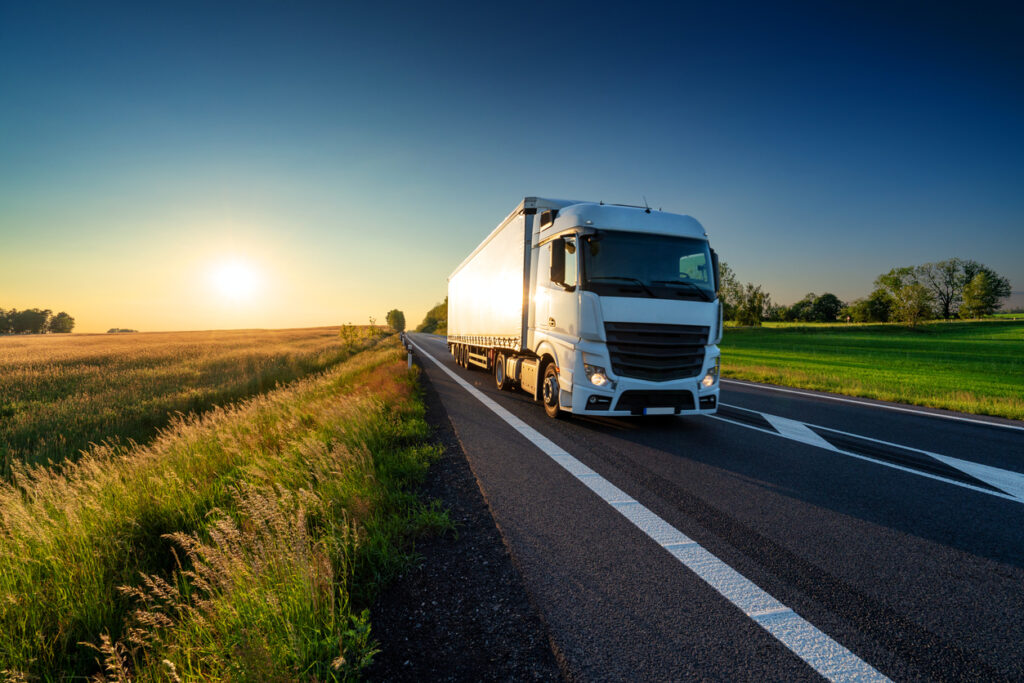Self-driving cars are making the news with increasing regularity. Currently, no car on the market is fully autonomous, but in the near future, we may see truly driverless vehicles.
Autonomous cars are an exciting prospect for consumers, but trucking companies are also eyeing self-driving technology. Although it will likely be quite some time before you see a driverless tractor-trailer next to you on the highway, a handful of companies are currently developing and testing autonomous trucking technology.
What Are Autonomous Trucks, and How Do They Work?
Autonomous trucks, also called self-driving trucks, are commercial trucks that can operate without human intervention. These vehicles rely on a collection of cutting-edge software and hardware:
Lidar (Light Detection and Ranging)
Without a human behind the wheel, an autonomous truck needs another way to “see” its environment. That’s where lidar comes in. Lidar is a technology that uses pulsing lasers to detect distances.
A lidar system typically has three main components:
- Laser: Uses light to measure distances from objects
- Scanner: Aggregates those distances into a 3D map
- GPS: Applies the 3D map to the vehicle’s current location
By creating a picture of the surroundings and applying it to the truck’s position, lidar allows an autonomous vehicle to sense and react to pedestrians, other vehicles, and objects in the road.
Radar
Radar works similarly to lidar, but instead of using pulses of light, it uses radio waves to measure distances. Radar has the advantage of working well in all weather conditions. Lidar systems may have trouble in low-visibility conditions, so self-driving vehicles are almost always equipped with radar as well.
Cameras
Autonomous trucks don’t just need to sense the presence of people, cars, and other environmental features. They also must be able to recognize and react to road signs and lane markers. Onboard cameras create a visual map of the surrounding area.
Global Positioning System (GPS)
An autonomous truck’s onboard GPS communicates with satellites to accurately determine its location. This constant stream of data allows the truck to maintain awareness of its position on highways, city streets, and even remote routes. GPS also integrates with mapping software to provide real-time navigation, helping the system plan routes, avoid traffic, and adapt to detours.
Artificial Intelligence
AI and machine-learning systems serve as the “brain” of the truck. They process and interpret data from the various sensors to make real-time decisions on the road.
How Do Autonomous Trucks Handle Refueling and Other Challenges?
Many conversations around autonomous trucks center on driving. But what about refueling, tire blowouts, and other challenges?
That depends on the company. Some businesses are currently developing robotic arms guided by computer vision. However, if self-driving trucks become the norm, they would likely need to fill up at depots designed specifically for autonomous refueling.
In the event of an equipment failure, some self-driving trucks are programmed to pull over and notify a human operator. From there, a technician can be deployed to assess the situation and make a repair.
Are Autonomous Trucks Safe?
Proponents of autonomous trucks often say that these vehicles will improve road safety. Many commercial truck accidents happen when drivers are fatigued from spending many hours on the road, and autonomous trucks eliminate that particular risk.
There may come a time when autonomous trucks are a safer alternative, but they pose serious safety concerns for now. The software programs that control autonomous vehicles are advanced but far from perfect.
For example, researchers at the University of California found that autonomous vehicles could be tricked into dangerous behaviors by ordinary objects. Specifically, the vehicles they tested would often stop abruptly if they encountered bicycles, boxes, and other objects placed beside the road. If a commercial truck were to stop suddenly on a high-speed road, it could cause a pile-up accident.
For Autonomous Trucking, the Future Remains Uncertain
Will the trucking industry one day be driverless? Maybe, but first, there are technological, regulatory, and ethical questions to navigate. Autonomous trucking is an intriguing possibility, but the technology still has a long way to go.
Contact the Jacksonville Truck Accident Lawyers at The Truck Accident Law Firm for Help Today
Autonomous trucks may represent the future of the trucking industry, but the risks they pose right now are very real. If you or a loved one has been injured in a crash involving a commercial truck—autonomous or otherwise—you deserve answers and fair compensation.
At The Truck Accident Law Firm, our Jacksonville truck accident lawyers have the knowledge, resources, and dedication to hold trucking companies and negligent parties accountable. Contact us today to schedule a free consultation and learn how we can fight for your rights.





